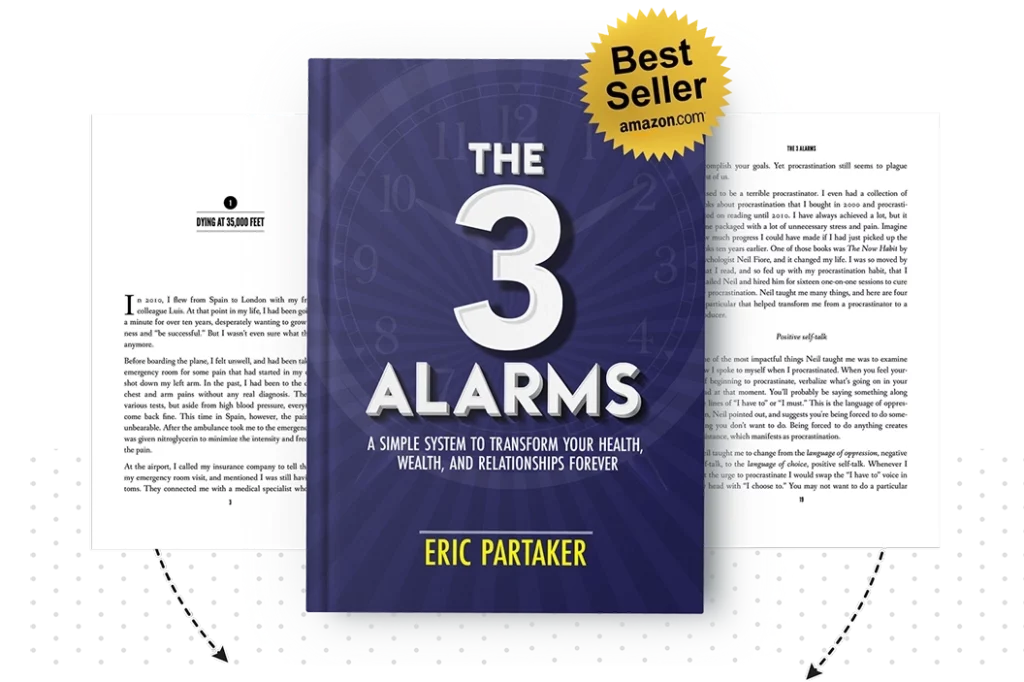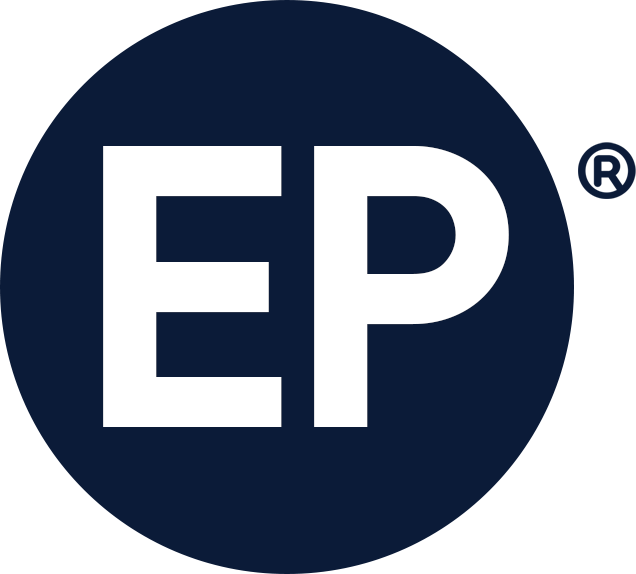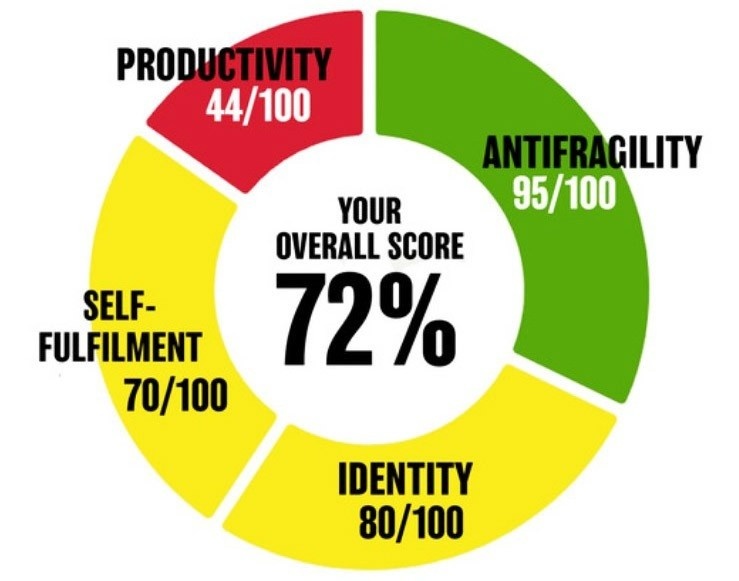SUMMARY
- Recognize that meetings aren’t actually a bad thing. A meeting is the perfect opportunity for people to think creatively about a problem, engage in productive conflict about a particular topic and create healthy debate. When people get the chance to lay in with different perspectives, they are more likely to buy into the outcome.
- Ask yourself if you really need to be at every meeting you attend. Do this by taking an 80/20 look at your meetings – what are the 20% of the meetings in your calendar which could create 80% of the results in your business and life?
- To combat meeting fatigue, don’t schedule 30 or 60-minute meetings; schedule only 25 or 50-minute meetings. Those five or 10 minutes give you a break and a chance to get up, recharge, and process everything that you’ve just heard.
- Ask yourself: How do I show up with excellence in this meeting? Think about how the best version of you would walk into that room or join the call and rock the session – not just for the benefit of the meeting, but for the benefit of all the attendees.
- Structure your schedule to avoid meeting overload by scheduling them all for the afternoon. I made a key decision to separate my days into maker versus manager time which means I focus on creative work and take meetings in the afternoons.
TRANSCRIPT
If you’re like me, you’ve probably sat in meetings before and thought, “Oh my gosh, I just want to get out of this meeting,” or, “This meeting is boring as heck and I’m going to fall asleep,” or, “Why am I even here?” Or “Do we have the right people in the room?” Or maybe you’re thinking, “I don’t want to be here at all”. Those thoughts are normal. Today I want to talk about how we make meetings awesome. How do we make them more productive? How do we get more out of them so that they won’t be something that you dread, but instead are something that you could actually look forward to because of the benefits that they provide, and because of the structures that we can put in place to make them more enjoyable, less draining and have higher energy?
The first thing that I like to do is recognize that it starts here in the head. It’s to recognize that meetings aren’t actually a bad thing. A meeting is a perfect opportunity for people to take off their functional hats, to think creatively about a problem, to engage in some productive conflict, around a particular topic – some healthy debate. It’s only by people getting the chance to lay in with different perspectives that they’re going to be more likely to buy into whatever the outcome is at the end of the meeting. If you think of it, people are more likely to want to proceed with a decision in a meeting if they feel like their voice was heard. Not necessarily if the final outcome of the media matches exactly what each participant wants, but they feel like they had the chance to at least state what was on their mind.
We get that in the form of a meeting where there’s some healthy debate; where people are encouraged to speak their mind. Very importantly, when you are the meeting facilitator or whoever is facilitating, the meeting, takes the role of being super conscious and super-aware of where there is conflict. Where might people not be agreeing? Is everything really being said? Sometimes in just the body language you can recognize that, “Wait a second, Jen over here doesn’t actually agree with what Robert has said”. It’s easy to let that moment go by, but it’s much more powerful if at that moment you were to say something like “Jen, I got the impression that you actually didn’t agree with everything that Robert just said, what is that? We’ll get that out on the table and discuss that again”.
If we treat a meeting as a place to engage in healthy debate and have a lot of healthy, productive conflict around whatever that meeting topic is, we can come up with new ideas and consider all perspectives. And very, very importantly, the meeting will have a much higher energy tone to it. People are more likely to eventually buy into whatever the final outcome is, because they feel like all sides were heard, including theirs. So that’s the first way that we can make a meeting awesome – by reframing meetings. They are a good thing, provided we create the right environment within the meeting.
The other thing that makes meetings far more useful and a way to make your meetings awesome – this might sound a bit counter-intuitive – but it’s to ask yourself, “Do I need to be at the meeting?” A lot of times we feel compelled to join every single meeting and perhaps not provide autonomy to others to run that meeting, to deliver their answer about whatever they think we should be doing next or their solution to a problem. We end up filling our schedule with meeting, after meeting, after meeting.
Instead, we could be trusting others on the team to go ahead and run a meeting on a particular topic, to arrive at a solution, and to consider all points of view. We can do this by taking an 80/20 look at our meetings. What are the 20% of the meetings in your calendar, which could create 80% of the results that you’re looking for, 80% of the momentum in your business, or your life, rather than join them all?
The other beauty of this is that when you do this, you give a lot more autonomy to others on your team to make decisions without you – as a manager, as a leader, or as an entrepreneur. Usually what you’ll see is that their energy and their work will fly. Take an 80/20 approach to your meetings. Do you really need to be at every single meeting that you’re currently at?
The third thing that we can do to make meetings awesome is to make sure that we’re combating meeting fatigue – whether we’re doing physical meetings, especially when we’re doing virtual meetings, I highly recommend (there’s actually a setting in your calendar where you can do this) that you don’t schedule 30-minute or 60-minute meetings; schedule only 25-minute or 50-minute meetings, because those five or 10 minutes give you a break, give you a chance to get up, recharge, and process everything that you’ve just heard. Maybe you just relax; have a pause, because if we go from one topic to the next with no break whatsoever, it can feel like you’re being put to the ringer. I’m sure you’ve had days where it’s just as exhausting, right?
You go from one meeting to the next, you get to the end of the day and you don’t even know half the things that you can’t even remember, half the things that were discussed – you have trouble thinking about all the actions that you should be taking from all the various things discussed in all of the meetings, and it just becomes a big blur. That’s because you’re stacking these meetings one on top of the other and it just becomes physically exhausting. Think of it this way, if you were at the gym and instead of it just being a short workout, the person said, “No, you’re going to work out for six straight hours and there’s going to be no rest between sets”. You’d collapse, you’d be exhausted. It’s the same thing with meetings. Meetings are work; they’re mental work. So we need recovery. We can’t just be doing the stress part of the equation. We need stress + rest = growth.
The fourth thing that you could do to really make your meetings awesome is to ask yourself: how do I show up with excellence in this meeting? How would the best version of me walk into that room? What does active participation in the meeting look like versus passive? Have you ever noticed when you’re in a meeting and if you’re not really talking, for example, you suddenly get a little bit drowsy? I’ve done this. I’ve had times where I’m sitting there, blinking my eyes and I’m thinking to myself, “Geez, I’m going to fall asleep”.
The simplest solution when that happens is to start speaking – to start being more actively engaged in whatever that meeting is. But you can also bring a lot more intentionality to the meeting by once again asking yourself beforehand, “How do I show up with excellence in this meeting today?” Now, where do you do that? Well, you could do it right before the meeting, but I prefer to do this right at the start of the day. I look at all the meetings that I have in the course of a day, and I ask myself, how would the best version of me interact with each of those people? I think about the people in the meeting, I think about their strengths, their weaknesses, what the outcome of the meeting is, what the potential pitfalls in the meeting are, and I picture: how would I navigate all of that?
How would the best version of me show up and rock that session with the other people, not just for the benefit of the meeting, but for the benefit of all the attendees. You’re a role model in those meetings – you’re demonstrating to others what they should be doing in the meetings. Remember the 80/20 thing? You don’t want to be present in all the meetings. You’re demonstrating to others what they should be doing in the meetings that you’re not going to be involved with. So really think, what does excellence mean for you in that meeting? How does that mean you participate actively versus passively?
The last and final thing – this was a real game-changer for me – have you been in a situation where it feels like you get to the end of the day and you’ve had no time to work on what mattered most? All of the things that you thought were going to be most important to you?
I had this all the time and I realized this was because I didn’t really have any structure to when my meetings were being scheduled. For example, if I had white space in my day, the whole day would just get filled with meetings. People would ask, “Eric, can you meet here? Can you meet there? Yes. I’m free. Then I’m free there. No problem”. Suddenly you have eight hours of solid meetings – but then I made a key decision to separate my days into maker versus manager time. Maker time is in the morning when my energy is highest. I don’t need the energy of others. If I was a light bulb, I’m a hundred percent power. Whereas in the afternoon manager’s time, my energy is a little bit lower. So is the energy of others. It’s almost like coming together and meeting with another person.
Maybe you’re both at 50% now you’ve got 100% energy again, but in the mornings I keep them free. When somebody says, “Can I schedule a meeting with you in the morning?” Rarely, unless it’s an absolute emergency, will I say yes – I simply say, “I’m sorry. I have another appointment at that time.” Now, that appointment is with myself to work on whatever’s creative at that moment, on that day. Then I’ve blocked together my meetings in the afternoons. That’s when I’m meeting with others, whether internally or externally.
You should really try this. I think you’re going to absolutely transform both how you feel about meetings, and what they can do for you – elevate them to a totally new level.




